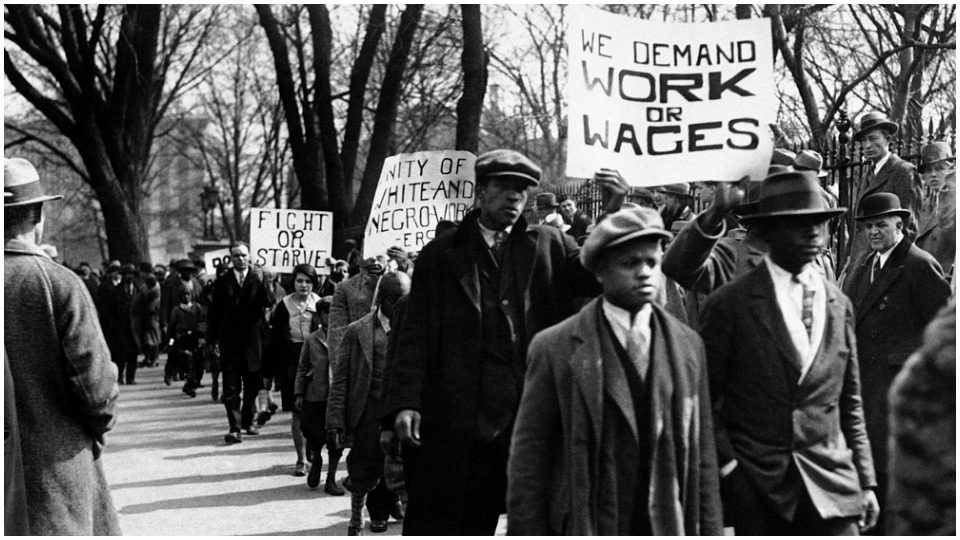
“Be realistic. Demand the impossible.” —Situationist slogan, 1968.
Demand #1: The $30-per-hour Minimum Wage.
Not phased in over so many years that today’s $30 is worth $20 by the time it takes effect. $30 an hour for all workers, no exceptions, now. This is an eminently reasonable demand. If anything, it’s too little to ask. $7.25 is a sick joke. Congress’ abdication of its moral duty to reward American workers for their extraordinary productivity by increasing the minimum wage at or faster than inflation has eroded the base salary since the Vietnam era. Corporate profits have soared as workers’ wages have stagnated.
The federal minimum wage was $1.60 in 1968. Adjusting for the official inflation rate, that’s $30.00 today. Let’s party like it’s 1968.
Demand #2: Free national healthcare.
Not market-based, not a hybrid—we need real, actual, universal healthcare. Every nurse and every doctor becomes a federal employee. Health insurance vanishes as a business sector. Every check-up, every test, every doctor’s visit, every medication, every surgical procedure is fully covered, no questions asked, as long as it’s approved by a physician.
This is not too much to ask. Germany, where only 0.5% of the population is uninsured, pays only 10.7% of GDP for healthcare, compared to 16% here in the U.S. Norway, where hospitals are operated by the government, has a $210 per citizen per year deductible after which the government picks up the tab for everything; like Germany, overall healthcare costs in Norway are about 60% of ours.
Throw in dental, vision and mental health.
Demand #3: Slash military spending by 80%.
We’re not the world’s policeman. We’re its deranged serial killer. The U.S. squanders $800 billion a year to invade, occupy, assassinate, intimidate and bomb people who mean us no harm and destroy their infrastructure. That’s more than the next nine biggest-spending militarist nations combined. And those countries total 10 times our population.
Slashing the Pentagon budget would make the world safer. Fewer U.S. wars and proxy wars would reduce anti-Americanism and thus reduce the chance of another terrorist attack, save thousands of American lives and millions of people overseas, not to mention massively helping out the environment.
Those savings would easily cover…
Demand #4: Free four-year college.
Young Americans have long been coerced into a devil’s bargain: without a college degree, they’ve been told, you won’t land a decent-paying job. College is insanely expensive so you’ll have to accept the burden of student loan debt. If you don’t make enough money after graduation due to bad luck or a bad economy or a changing workplace, too bad, you still have to pay. You can’t even discharge the loans in bankruptcy.
If the corporations who own our politicians require job applicants to have a college degree, a college degree should be free. 39 countries have free college. We deserve, and can afford, the same as Kenya, Iceland and Panama.
Demand #5: Leadership to ban the most frightening weapons.
As the world’s most aggressive militaristic nation and its biggest international arms dealer, only the U.S. has the standing and power to stop the arms races we’re starting. The U.S. should forswear its currently-stated, insane option of launching a nuclear first strike and invite all other nuclear powers to make the same commitment. It should join the 80% of the world’s nations that have pledged not to use landmines. It should ban drone-based weapons in its military, police and civilian sectors and demand that other nations do the same. The world must come together to ban lethal autonomous weapons; the U.S.’ early lead in this technology gives it leverage to lead the way.
More to come.
(Ted Rall (Twitter: @tedrall), the political cartoonist, columnist and graphic novelist, co-hosts the left-vs-right DMZ America podcast with fellow cartoonist Scott Stantis. You can support Ted’s hard-hitting political cartoons and columns and see his work first by sponsoring his work on Patreon.)

